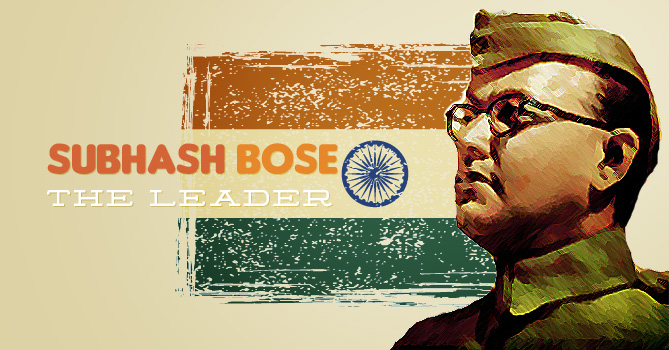 Netaji Subhash Chandra Bose is one of the most revered figures of the history of India’s independence movement. His patriotism went to the point of defiance of British rule and an abhorrence and complete disregard for its military might, so much so that he formed the Indian National Army with the precise idea of combating British colonialism with arms and ammunition – something that no one had ever attempted before. Netaji also happens to be one of the most divisive political figures in India with plenty of people lauding and worshipping him for his never-say-die attitude and having the courage to fight fire with fire while so many other prominent figures like Mahatma Gandhi and Jawaharlal Nehru chose non-violent means to counteract the colonial masters. In the same vein lot of people find his efforts to seek help from Imperial Japan and Nazi Germany to be a bit too desperate and ones that could have compounded problems for India rather than solve them.
Netaji Subhash Chandra Bose is one of the most revered figures of the history of India’s independence movement. His patriotism went to the point of defiance of British rule and an abhorrence and complete disregard for its military might, so much so that he formed the Indian National Army with the precise idea of combating British colonialism with arms and ammunition – something that no one had ever attempted before. Netaji also happens to be one of the most divisive political figures in India with plenty of people lauding and worshipping him for his never-say-die attitude and having the courage to fight fire with fire while so many other prominent figures like Mahatma Gandhi and Jawaharlal Nehru chose non-violent means to counteract the colonial masters. In the same vein lot of people find his efforts to seek help from Imperial Japan and Nazi Germany to be a bit too desperate and ones that could have compounded problems for India rather than solve them.
Ideals and principles for which he laid down his life
Netaji always wanted India to enjoy complete political independence, which is something that the All India Congress arrived at after several stages. He also was a firm believer in the inadequacy of the non-violent methods adopted by Gandhiji in procuring India’s independence. He in fact supported violent confrontations with the British. He was also a great believer in the teachings enshrined in Bhagavad Gita and was moved by Swami Vivekananda’s espousal of nationalism, as well as focus on social reform and service, at a very young age.
He also regarded himself as a socialist and attributed its origins in India to Swami Vivekananda. Even though before 1939 Netaji was highly disapproving of the way democracy was destroyed in Germany and the policies of racial segregation over there, he preferred the authoritarian methods followed over there, as well as in Italy, and felt that when it came to constructing the country’s foundations in the initial stages of its independence, these could prove to be fairly effective.
Netaji also felt that democracy was the best option for India but no democratic setup might be effective enough to correct the social and economic inequalities in India. He was an admirer of the-then Soviet state and felt that it could be used to build India up from ground zero. In his lifetime Netaji also came up with a number of slogans such as “Give me blood and I will give you freedom”, “Dilli chalo”, “Jai Hind”, and “Ittefaq, Etemad, Qurbani”.
His political struggles
Netaji became the President of Congress for two straight terms but he was always at loggerheads with Gandhiji, who also happened to oppose his presidency. The main bone of contention between both was Netaji’s demand for complete independence, which Gandhiji was clearly not in favour of. Even though Netaji attempted to maintain truce Gandhiji advised him that he should form a separate cabinet. This rift also drove a wedge between Nehru and Netaji. In 1939 he defeated Pattabhi Sitaramayya, a candidate backed by Gandhiji himself, for the post of Congress President. However, this was to be his last term in the said position since he was forced to put down his papers over irreconcilable differences with the faction led by Gandhiji. He left the party and formed the All India Forward Bloc on 22 June 1939. His new party went on with his demand for total independence and as a result he was put behind bars on several occasions.
What can the youth learn from him?
There are plenty of things to learn from Netaji. The first thing that we all can learn from him is his steadfast dedication to his goal. Netaji wanted complete independence for India and laid down his life for that – there can hardly be any sacrifice greater than that. His efforts in seeking help from militarist entities like Germany and Japan could be faulted but his heart was in the right place. He left no stone unturned in an effort to see his beloved country free from the clutches of the British and kept knocking every door that he could find. That is something that we need to take from him – the remarkable attitude of persevering come what may. He was also one individual who completely believed in extending his horizons and it is important that in this day of quick-fix solutions we focus more on improving the depth of our knowledge and make ourselves better in that regard.




